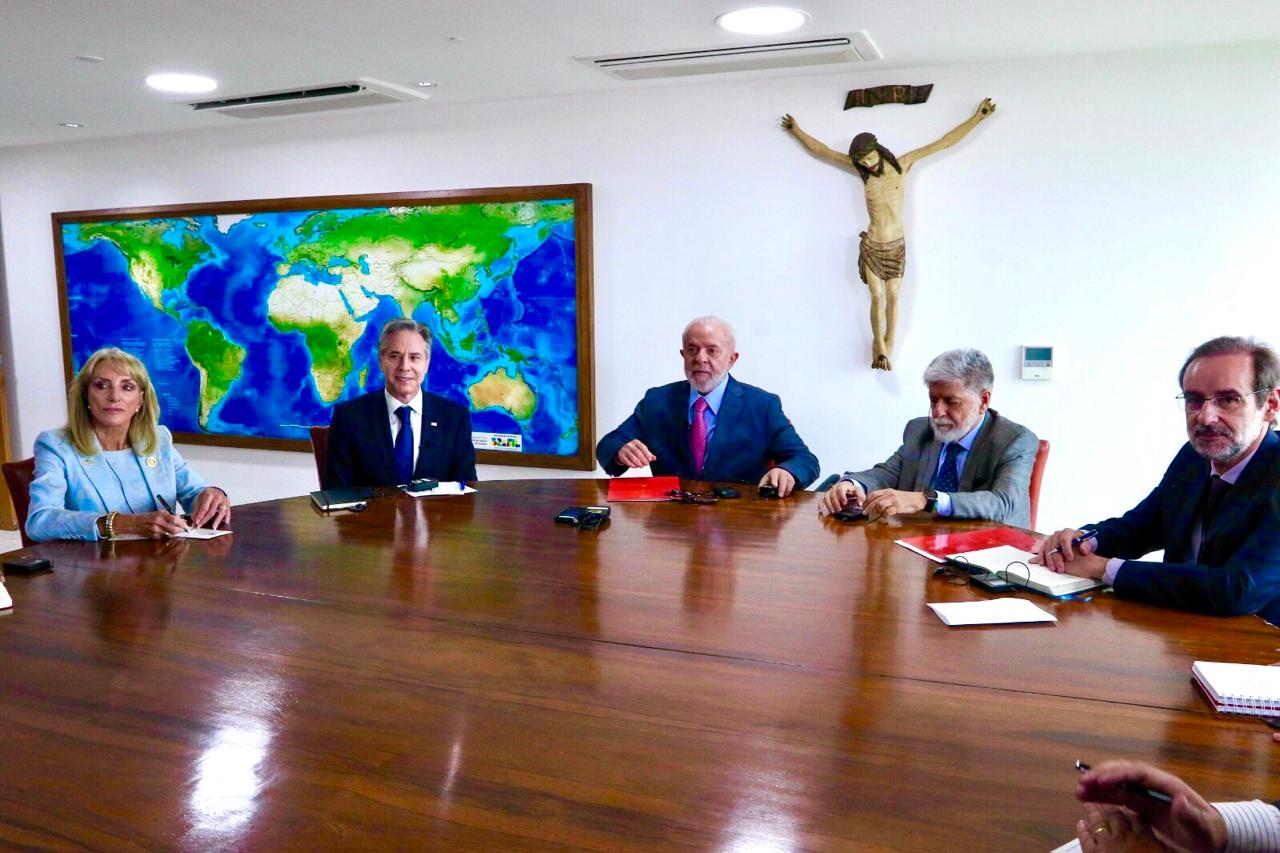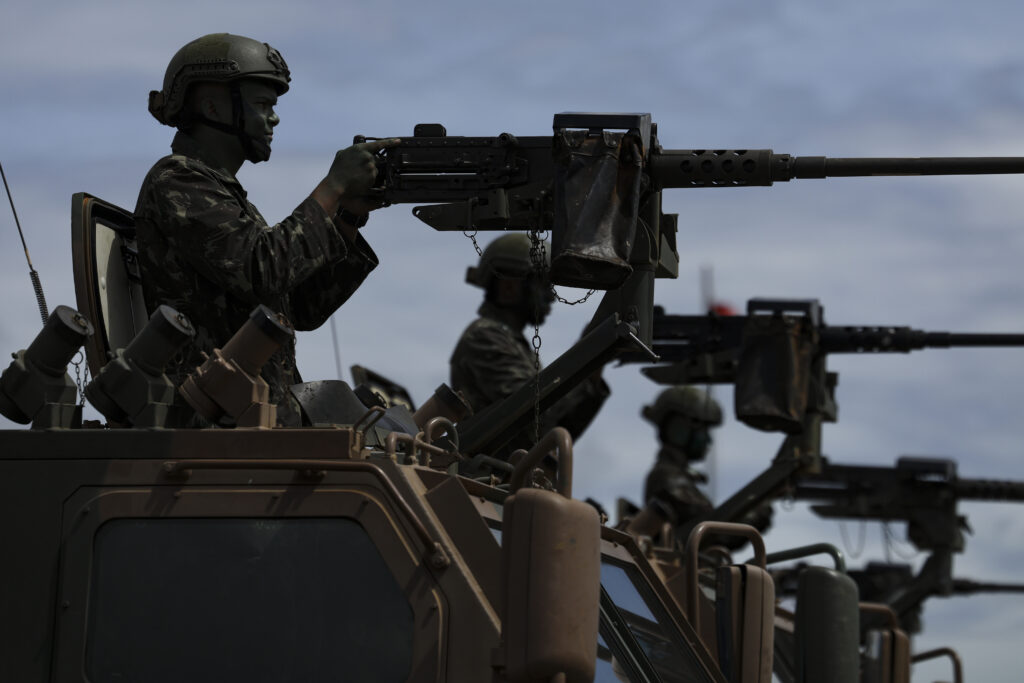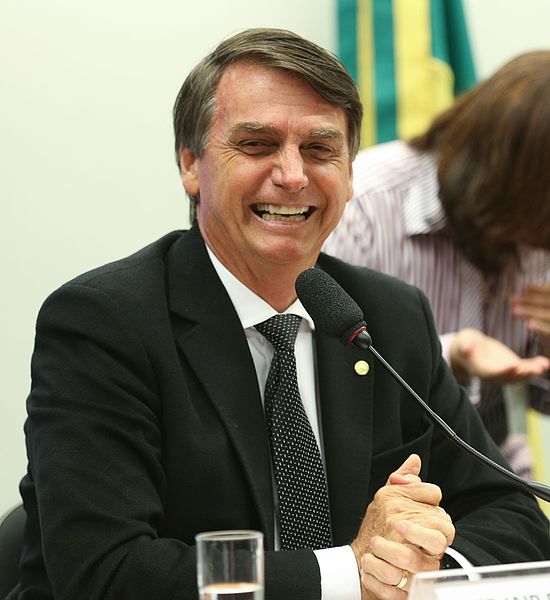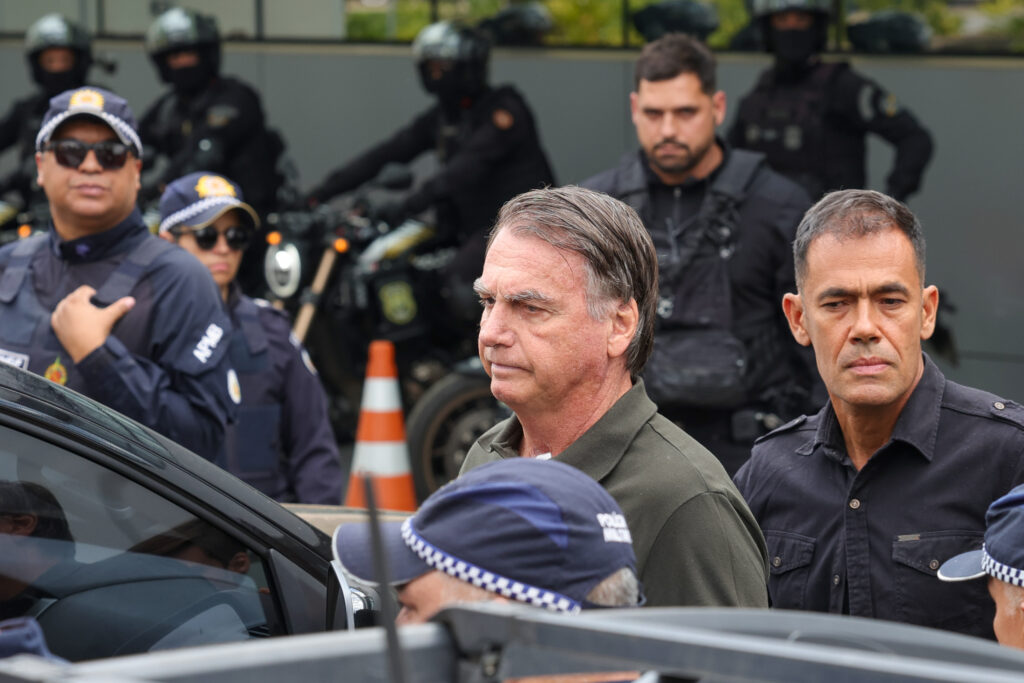São Paulo, Brazil – Brazil’s President Luiz Inácio Lula da Silva met with United States Secretary of State Antony Blinken on Wednesday on the sidelines of a G-20 meeting.
The pair discussed a number of issues including tensions between Venezuela and Guyana, workers’ rights, clean energy transition, as well as the Israel-Hamas War, a sensitive issue following earlier remarks by Lula which led to a diplomatic row with Israel earlier in the week.
According to Reuters, a U.S. diplomatic official said that the two had a “frank exchange, with the secretary making clear that we don’t agree with those comments.”
During a visit to Ethiopia on Sunday, Lula compared the Israeli reaction to the attacks by Hamas in October to the holocaust.
“What is happening in the Gaza Strip to the Palestinian people is something that does not exist at any other time in history. In fact, it did exist: when Hitler decided to kill the Jews,” said Lula at the time.
In the same speech, Lula also condemned the Hamas terrorist attacks in southern Israel, which left more than 1,000 people dead, and once again called for the release of the hostages held by the terrorist organization in Gaza.
“Being a humanist today means condemning the attacks perpetrated by Hamas against Israeli civilians and demanding the immediate release of all hostages. Being a humanist also means rejecting Israel’s disproportionate response, which has killed almost 30,000 Palestinians in Gaza, the vast majority of them women and children”, said Lula.
The damage to relations between the two countries, though, had already been done. Israel’s Prime Minister Benjamin Netanyahu called Lula’s words shameful and serious and said that the Brazilian president had crossed a red line.
Israeli Foreign Minister Israel Katz demanded a formal retraction from the Brazilian leader and declared Lula persona non grata in Israel. Lula subsequently recalled Brazil’s ambassador to Israel, deepening the rift.
Despite Israel’s strong reaction, Lula’s words received no formal condemnation from the international community and in Latin America, the president received support and solidarity from the presidents of Bolivia, Venezuela, Colombia and Cuba.
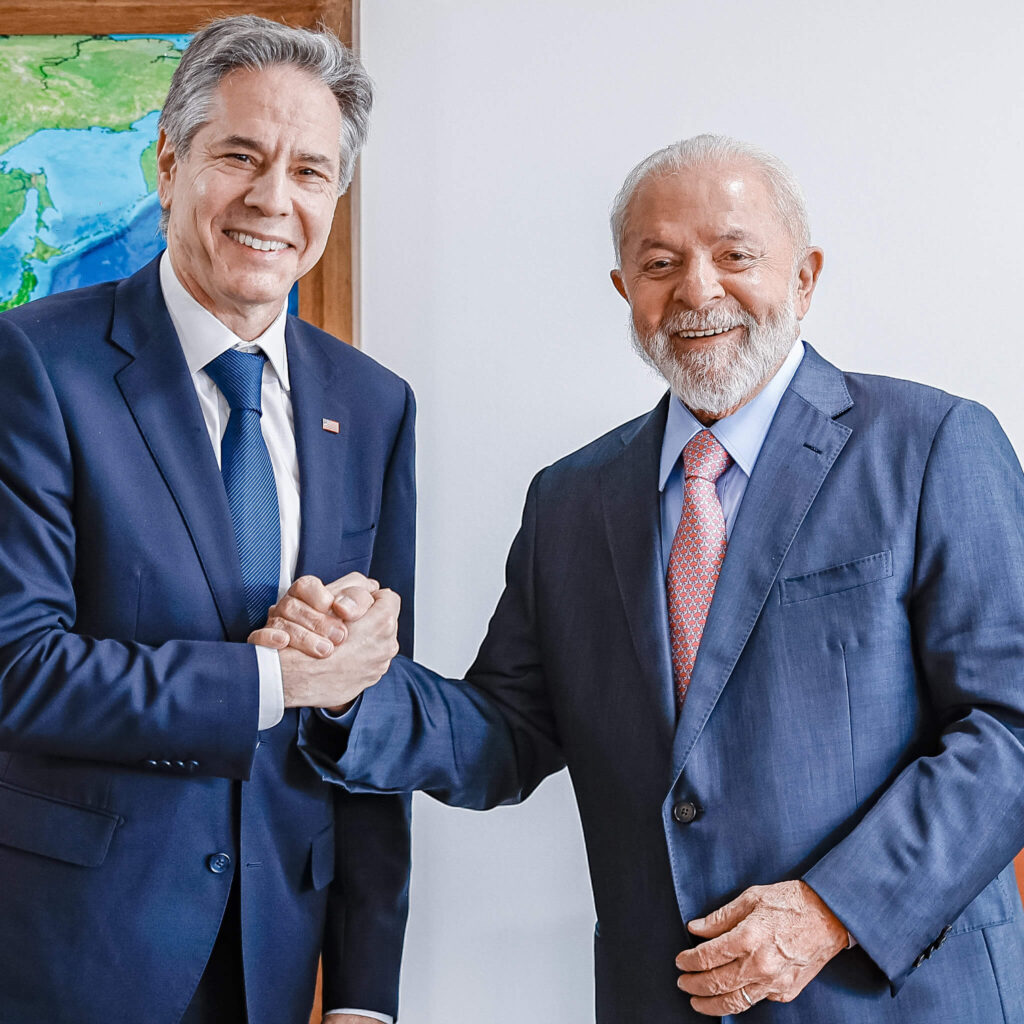
During their “frank exchange” on Wednesday at the Planalto Palace in Brasília, Blinken also did not condemn Lula’s comments. He conveyed the message to Lula that the U.S. does not agree with what has been said about the conflict and also stated that the American government, like Brazil, supports the creation of an independent Palestinian state.
Regarding the tension between Venezuela and Guyana over Venezuela’s interest in the Guyanese territory of Essequibo, Blinken thanked Brazil for its role in building a dialogue between the countries.
According to a communique from the Secretary of State, Blinken “commended President Lula for defending workers’ rights through the U.S.-Brazil Partnership for Workers Rights,” and also thanks Lula for his global leadership on combating climate change.
Blinken was in Brazil to attend the G-20 foreign ministers’ conference in Rio de Janeiro to help prepare for the G-20 summit there in November. The group brings together the world’s 19 largest economies, as well as the European Union and the African Union.
Brazil holds the rotating presidency of the G-20 until November and its priorities are the fight against inequality, the fight against hunger and poverty and tackling climate change.
The group’s official summit is scheduled for November 18 and 19 in Rio de Janeiro.


